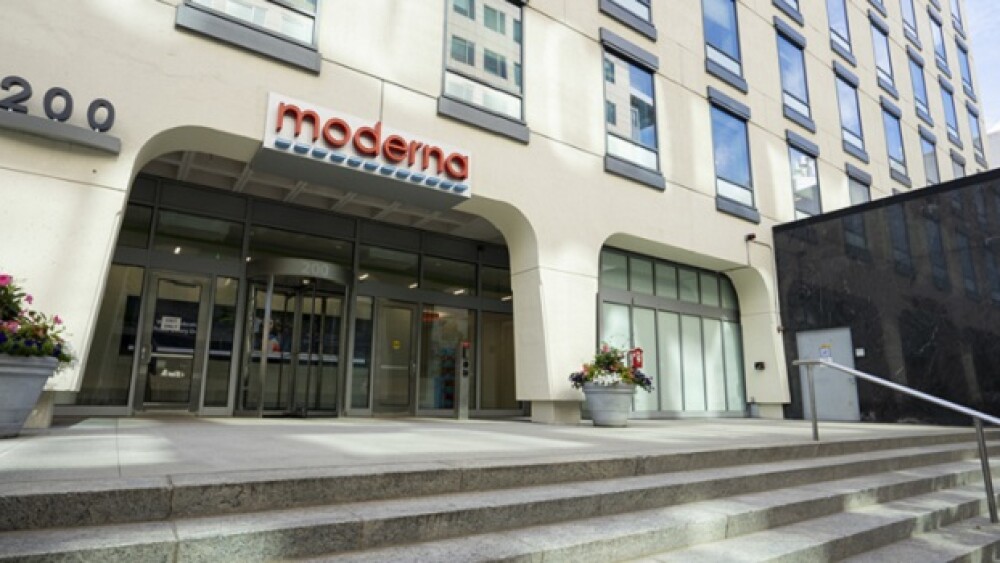NEW YORK, July 27, 2011 /PRNewswire/ -- Keryx Biopharmaceuticals, Inc. (Nasdaq: KERX) today announced completion of patient enrollment in its Phase 3 registration trial of KRX-0401 (perifosine) for the treatment of refractory, advanced colorectal cancer. This Phase 3 trial, with over 430 randomized patients, is being conducted pursuant to a Special Protocol Assessment (SPA) with the Food and Drug Administration (FDA) and with Fast-Track Designation. Perifosine is a novel, potentially first-in-class, oral anti-cancer drug candidate that inhibits Akt activation in the phosphoinositide 3-kinase (PI3K) pathway.
The Phase 3 trial, entitled the "X-PECT" (Xeloda® + Perifosine Evaluation in Colorectal cancer Treatment) trial, is a randomized (1:1), double-blind trial comparing the efficacy and safety of perifosine + capecitabine vs. placebo + capecitabine in over 430 patients with refractory advanced colorectal cancer. Patients must have failed available therapy including 5-fluorouracil (5-FU), oxaliplatin (Eloxatin®), irinotecan, bevacizumab (Avastin®) and, if KRAS wild-type, failed therapy with prior cetuximab (Erbitux®) and/or panitumumab (Vectibix®). The primary endpoint is overall survival, with secondary endpoints including overall response rate (complete + partial responses), progression-free survival and safety. Approximately 360 events of death will trigger the un-blinding of the study.
Dr. Johanna Bendell, Director of GI Oncology Research for the Sarah Cannon Research Institute, Nashville, Tennessee, is Study Chair for the Phase 3 investigational team. Dr. Cathy Eng, Associate Medical Director for the Colorectal Center at MD Anderson Cancer Center in Houston, Texas, is the Lab Correlative Study Chair leading the biomarker analyses. Sixty-five U.S. sites are participating in the study.
Ron Bentsur, Chief Executive Officer of Keryx, commented, "We are very excited to have reached our enrollment goal for this study, and are grateful to our investigators and their research teams for their dedication and commitment in recruiting patients for this important study." Mr. Bentsur added, "We believe that the rapid enrollment into the study, of less than 16 months in U.S. centers only, reinforces the need for additional therapies for the tens of thousands of patients suffering from refractory, advanced colorectal cancer."
Perifosine is also currently in a Phase 3 trial, under Special Protocol Assessment (SPA), for the treatment of relapsed/refractory multiple myeloma, with Orphan Drug Status and Fast Track Designation granted.
KRX-0401 (perifosine) is in-licensed by Keryx from Aeterna Zentaris Inc. in the United States, Canada and Mexico.
About Colorectal Cancer
According to the American Cancer Society, colorectal cancer is the third most common form of cancer diagnosed in the United States. It is estimated that over 141,000 people will be diagnosed with some form of colorectal cancer in the United States with over 49,000 patients dying from colorectal cancer in 2011. Surgery is often the main treatment for early stage colorectal cancer. When colorectal cancer metastasizes (spreads to other parts of the body such as the liver) chemotherapy is commonly used. Treatment of patients with recurrent or advanced colorectal cancer depends on the location of the disease. Chemotherapy regimens (i.e. FOLFOX or FOLFIRI either with or without bevacizumab) have been shown to increase survival rates in patients with advanced colorectal cancer. Currently, there are seven approved drugs for patients with advanced colorectal cancer: 5-fluorouracil (5-FU), capecitabine (Xeloda®), irinotecan, oxaliplatin (Eloxatin®), bevacizumab (Avastin®), cetuximab (Erbitux®), and panitumumab (Vectibix®). Depending on the stage of the cancer, two or more of these types of treatment may be combined at the same time or used after one another. For example, FOLFOX combines 5-FU, leucovorin and oxaliplatin and FOLFIRI combines 5-FU, leucovorin and irinotecan. Bevacizumab, a VEGF monoclonal antibody, is commonly administered with chemotherapy. Typically, patients who fail 5-FU, oxaliplatin, irinotecan, and bevacizumab-containing therapies, and who have wild-type KRAS status receive EGFR monoclonal antibody therapy with either cetuximab or panitumumab. Once patients progress on these agents, there are no further standard treatment options.
About Special Protocol Assessments
The Special Protocol Assessment (SPA) process is a procedure by which the FDA provides official evaluation and written guidance on the design and size of proposed protocols that are intended to form the basis for a new drug application.
Final marketing approval depends on the results of efficacy, the adverse event profile and an evaluation of the benefit/risk of treatment demonstrated in the Phase 3 trial. The SPA agreement may only be changed through a written agreement between the sponsor and the FDA, or if the FDA becomes aware of a substantial scientific issue essential to product efficacy or safety. For more information on Special Protocol Assessment, please visit: http://www.fda.gov/downloads/Drugs/GuidanceComplianceRegulatoryInformation/Guidances/ucm080571.pdf.
About Keryx Biopharmaceuticals, Inc.
Keryx Biopharmaceuticals is focused on the acquisition, development and commercialization of medically important pharmaceutical products for the treatment of cancer and renal disease. Keryx is developing KRX-0401 (perifosine), a novel, potentially first-in-class, oral anti-cancer agent that inhibits Akt activation in the phosphoinositide 3-kinase (PI3K) pathway, and also affects a number of other key signal transduction pathways, including the JNK pathway, all of which are pathways associated with programmed cell death, cell growth, cell differentiation and cell survival. KRX-0401 is currently in Phase 3 clinical development for both refractory advanced colorectal cancer and multiple myeloma, and in Phase 1 and 2 clinical development for several other tumor types. Each of the KRX-0401 Phase 3 studies is being conducted under a Special Protocol Assessment (SPA) agreement with the Food and Drug Administration (FDA). Keryx is also developing Zerenex (ferric citrate), an oral, ferric iron-based compound that has the capacity to bind to phosphate and form non-absorbable complexes. The Phase 3 clinical program of Zerenex in the treatment for hyperphosphatemia (elevated phosphate levels) in patients with end-stage renal disease is being conducted pursuant to an SPA agreement with the FDA. Keryx is headquartered in New York City.
Cautionary Statement
Some of the statements included in this press release, particularly those anticipating future clinical trials and business prospects for KRX-0401 may be forward-looking statements that involve a number of risks and uncertainties. For those statements, we claim the protection of the safe harbor for forward-looking statements contained in the Private Securities Litigation Reform Act of 1995. Among the factors that could cause our actual results to differ materially are the following: our ability to successfully and cost-effectively complete clinical trials for KRX-0401; the risk that the data (both safety and efficacy) from the Phase 3 trials will not coincide with the data analyses from the Phase 1 and Phase 2 clinical trials previously reported by the Company; and other risk factors identified from time to time in our reports filed with the Securities and Exchange Commission. Any forward-looking statements set forth in this press release speak only as of the date of this press release. We do not undertake to update any of these forward-looking statements to reflect events or circumstances that occur after the date hereof. This press release and prior releases are available at http://www.keryx.com. The information found on our website and the FDA website is not incorporated by reference into this press release and is included for reference purposes only.
KERYX CONTACT:
Lauren Fischer
Director - Investor Relations
Keryx Biopharmaceuticals, Inc.
Tel: 212.531.5965
E-mail: lfischer@keryx.com
SOURCE Keryx Biopharmaceuticals, Inc.




